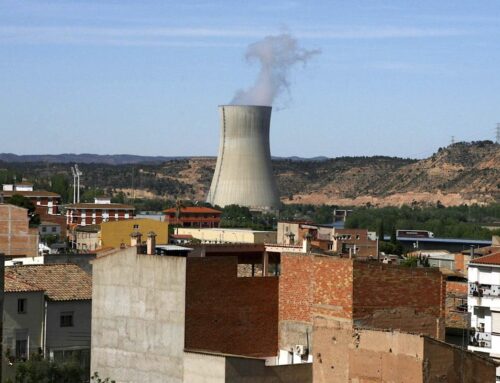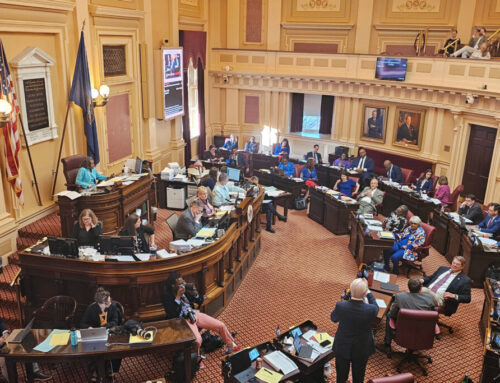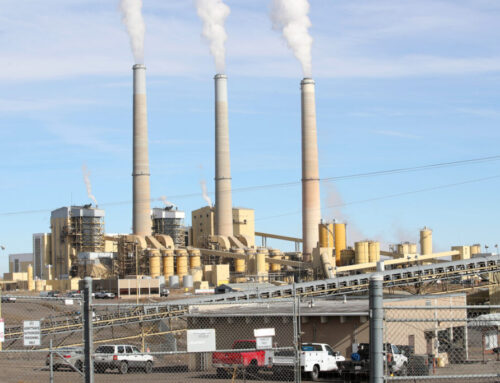Shops selling cannabis products should be regulated, N.C. child advocacy group says
December 18, 2024
This article first appeared on North Carolina Health News and is republished here under a Creative Commons license.
Child advocates want the North Carolina General Assembly to regulate the sale of intoxicating cannabis products, many of which are packaged to look like popular candy and snacks.
They argue that products with tetrahydrocannabinol — or THC, the psychoactive compound that creates the “high” from cannabis products— are sold without any of the controls, such as licensing, that prevent the sale of tobacco or alcohol to youth. On top of that, these products are popping up everywhere — malls, gas stations, health food stores, vitamin shops and bodegas, said Mary Beth Cox, a substance use epidemiologist with the North Carolina Department of Health and Human Services. She has even seen them at a garden center near her home in Winston-Salem.
“They are among, like, the fertilizer and soil bags,” Cox told the North Carolina Child Fatality Task Force at its Dec. 10 meeting. “So without a registry, we don’t know where these are being sold.”
Intoxicating cannabis product use has been growing among the state’s youth. The rate of emergency room visits for THC ingestion among children rose from 1 per 100,000 children in 2016 to 18 per 100,000 children in 2023.
“The obstacles that we’re seeing most is how to enforce a non-regulated industry,” Special Agent in Charge Josh Batten with North Carolina’s Alcohol Law Enforcement told the task force. “We’re one of nine states that doesn’t require a permit for these types of stores.”
Marijuana and hemp are two varieties of the same plant, cannabis sativa. Marijuana is illegal in the U.S. and North Carolina, but hemp is not.
A big issue for law enforcement is that it is impossible to tell the difference between hemp and marijuana just by looking. The only way to know if something is illegal is through testing THC levels, Batten said.
The main form of THC found in hemp is delta-9, but other variants, including delta-8, also naturally occur in the plant in small doses. Another compound that also comes from the cannabis plant called cannabidiol — colloquially known as CBD — does not have psychoactive properties but is a common ingredient in products that promote relaxation, better sleep and pain relief.
Unregulated sales of intoxicating cannabis products flourished after North Carolina made hemp legal to match the 2018 federal Farm Bill. The bill made it legal to grow and sell hemp so long as the plant has a concentration of delta-9 THC of less than 0.3 percent on a dry weight basis.
Hemp product manufacturers realized they could sell products containing delta-8 THC, delta-10 THC and even delta-9 THC, so long as the concentration falls under the legal limit.
Such “novel cannabinoids” are often artificially produced by chemically converting CBD or delta-9 THC that has been extracted from legally grown hemp.
“The biggest issue we’re seeing when I’m in these stores is a lot of these are not delta-9 products,” Batten said. “It’s delta-8, delta-10. They call it ‘delta gold,’ ‘delta-15.’ They put all kinds of labels on this.”
None of these products has been approved by the U.S. Food and Drug Administration. And there is no federally mandated age limit to buy them.
Research has shown that people who begin using cannabis at a young age are more likely to become addicted. Children, who still have developing brains, are particularly susceptible to the detrimental effects of cannabis.
THC can affect memory, attention, decision-making and risk-taking, according to the Centers for Disease Control and Prevention.
In addition, it can impact learning, and studies have shown that people who use cannabis are at increased risk for mental illness, Cox said.
For teens, there’s also the added risk of impaired driving and accidents, she said.
Studies show teens are turning more and more to edible products and vaping instead of smoking marijuana. Fatalities from the drug itself are rare, but impairment from using THC can lead to fatal accidents.
Acute poisoning symptoms include confusion, nausea and vomiting, delusions or hallucinations, rapid heart rate, trouble breathing and panic or anxiety, Cox said.
One reason children could be consuming more cannabis than they realize is that it takes longer to feel the effects of THC when it is ingested versus inhaled, Cox said.
“It also takes a lot longer sometimes for those effects to fade,” she said.
For young children, they just see a treat.
Cox showed the task force members photos of regular candy next to candy with THC in it. The bag of “Skittles” included a label showing there’s 20 milligrams of THC in each piece of candy for a total of 400 milligrams in the entire package.
The dosage matters, Cox said.
“I think about my 5-year-old. She would never, if she happened upon this Skittle package, just eat one Skittle,” she said.
While cannabis-infused products are cropping up in a lot of different stores, Batten said vape shops have become “the catch-all for all of these products.”
He told task force members that without regulation, law enforcement is limited in what it can do.
Alcohol Law Enforcement has no right to go into vape shops to inspect them, like it does with stores that sell tobacco or alcohol, which are regulated under North Carolina law. After getting a complaint, agents can go in to make undercover buys. Then the products have to be tested, which is costly, Batten said. Charges can be filed if the THC levels are high enough.
Child Fatality Task Force members discussed concerns with vape shops earlier this year, as vaping continues to be a problem with youth.
At the task force’s Dec. 10 meeting, the group voted to support legislation to prevent child and youth access to intoxicating cannabis by:
- Prohibiting the sale or distribution of intoxicating cannabis or hemp products to people younger than 21.
- Implementing regulations for packaging of such products to require appropriate warnings, child-resistant packaging, and to prohibit packaging that is attractive to children and youth.
- Requiring permitting for retailers who sell intoxicating cannabis or hemp products.
- Prohibiting those under 21 from entering vape shops.
North Carolina legislators have already made an attempt to address the issue. N.C. House Bill 563, which was filed in April 2023, would have licensed the sale of hemp-derived consumables and made it illegal to sell them to anyone under 21. The bill also would have attached civil penalties for retailers and made it a misdemeanor for anyone under 21 to buy the products. In addition, the bill included restrictions that would prevent packaging that appealed to children. The Senate made several revisions and returned the bill to the House, where it stalled in the rules committee.
Rep. Carla Cunningham (D-Charlotte), a member of the Child Fatality Task Force, co-sponsored the bill. She shared a story with task force members about a Johnston County parent whose son was involuntarily committed after consuming something with delta-8 in it. He became psychotic and was hallucinating, she said.
“We have to do something in that space,” she said. “It cannot continue to go unregulated, because it is having a significant impact on the younger people that have access to it.”
North Carolina Health News is an independent, non-partisan, not-for-profit, statewide news organization dedicated to covering all things health care in North Carolina. Visit NCHN at northcarolinahealthnews.org.
Search
RECENT PRESS RELEASES
Related Post




